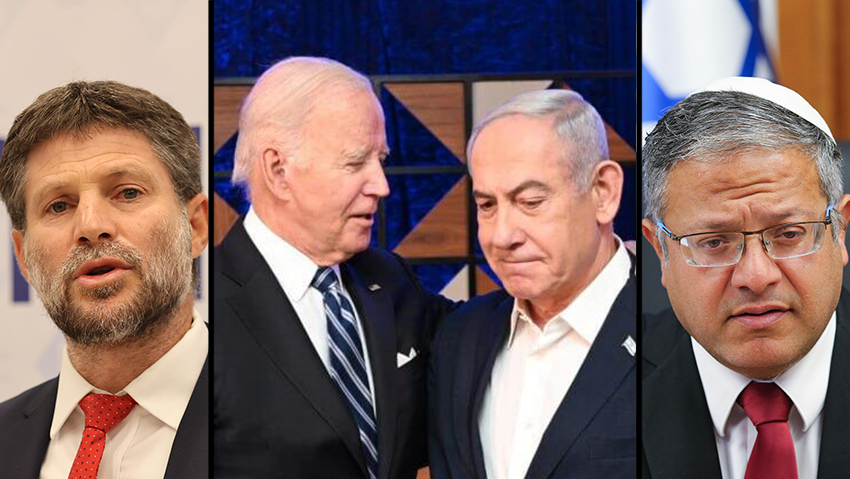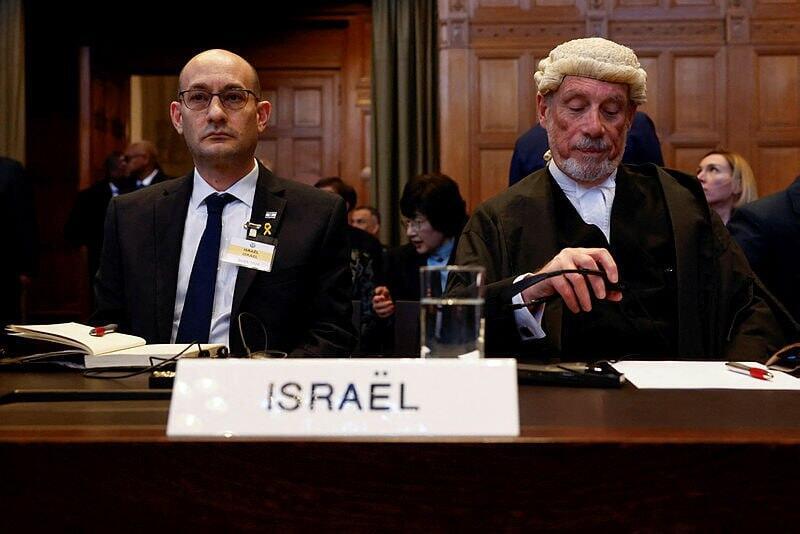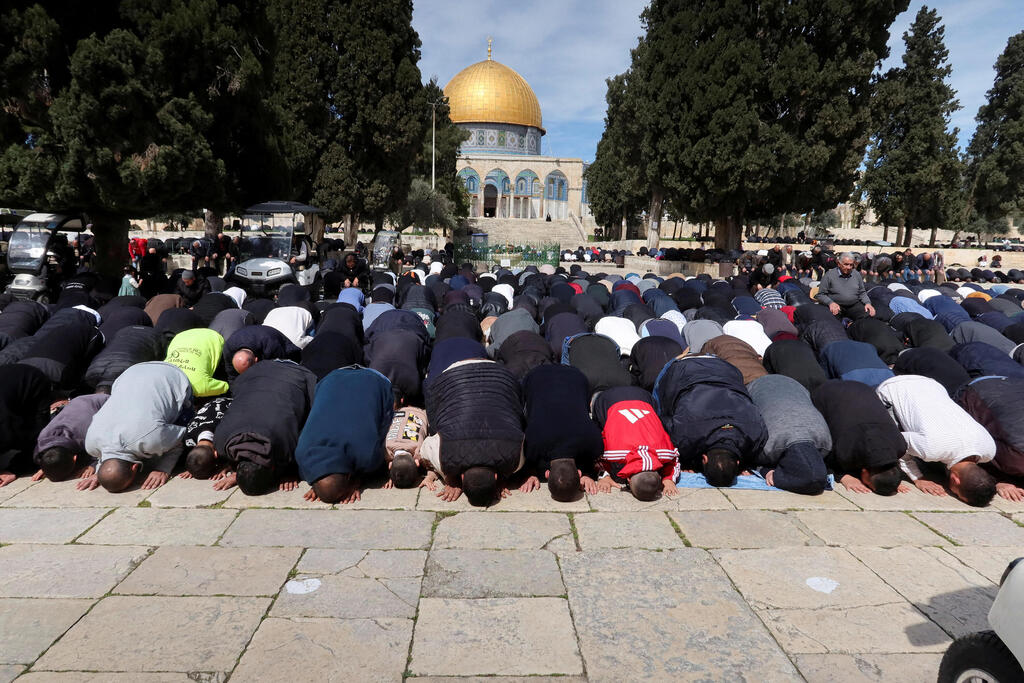Getting your Trinity Audio player ready...
While there are those here in Israel, including politicians, who believe (and say) that we can manage without the United States, it seems that the majority understands that American support is vital, but appears to believe that it is an inherent and unconditional right. This assumption merits examination.
Read more:
Last April, AIPAC (America Israel Public Affairs Committee), among the most powerful and influential players in Washington, issued a statement marking 75 years of Israel's independence. It said that "… Israel has been a reliable and dependable American ally that embodies our values of freedom, democracy, equality and pluralism. The Jewish state is a robust democracy that shares America’s interests and values, and it is the only ally upon which America can consistently depend in an unstable region dominated by autocratic regimes".
4 View gallery


Prime Minister Benjamin Netanyahu with bi-partisan AIPAC caucus
(Photo: Kobi Gideon, Ltd)
This is the message which hundreds of staff and thousands of volunteers convey to successive administrations and to Democrats and Republicans in Congress, all of whom are committed, with varying emphases, to human rights and to liberal-democratic values. These truths are repeated with every regular request, such as generous annual assistance and support in international organizations, or with irregular requests, like the unprecedented aid package designed to contend with the current crisis, and funding to develop a unique weapons system.
Israel and its supporters are accustomed to this double declaration – we are the only democracy in the Middle East, an island of stability that guarantees American interests – is enough to ensure that all our wishes are fulfilled. However, in order to avoid unpleasant surprises, it is worth examining the basic assumptions on which Israelis and their supporters base their confidence in the ongoing generosity of the American taxpayer.
4 View gallery


Netanyahu's coalition guidelines undermine U.S. policy
(Photo: Alex Kolomoisky, Haim Zach, Ltd)
Case in point: the guidelines of the current coalition open with “The Jewish people have an exclusive and indisputable right to all parts of the Land of Israel. The Government will promote and develop settlement in all parts of the Land of Israel - the Galilee, the Negev, the Golan and Judea and Samaria". This means that contrary to the policy of all US administrations, Israel does not recognize Palestinian rights and does not aim to reach a political solution, but rather intends to deepen its civilian hold (not to be confused with a security-military presence). What is the answer to the congressperson who asks how bi-national reality tallies with democracy, freedom and equality, and may even use the word 'apartheid'?
4 View gallery


Israel appeared in The Hague following petition by South Africa, a former apartheid state
(Photo: Reuters, Piroschka van de Wouw)
As for pluralism, a value which is important enough to appear on AIPAC's list: much has been said about Israel's attitude to the majority of American Jews, who are not Orthodox and are the first to stand with us in times of need; I recall the ongoing slight of an American congressman who led on Israeli issues, and whose wife underwent a Conservative conversion to Judaism.
If that can be brushed off as an internal Jewish affair, not so harassment Christian clergy and institutions. A legislator might ask what pluralistic Israel is doing to stop such acts and to punish the perpetrators. Or, she would wish to know why access of Arab-Israelis to the Temple Mount might be limited during the holy month of Ramadan, despite their exemplary conduct since October 7. Preserving the coalition may be a legitimate reason, but it does not pass the test of pluralism.
4 View gallery


Israeli government withholds religious restrictions from Muslims during Ramadan despite tension
(Photo: REUTERS/Sinan Abu Mayzer)
As for the vibrancy of Israeli democracy, some five months have passed since major players in America expressed concern about the government's intention to blur the separation of powers, legislate on the media, and undertake other actions that would undermine the basis of democracy as they see it.
What remains of the aforementioned AIPAC statement is Israel's reliability as an ally. There is no need to describe the shock to Israel and to its supporters when its powerful image shattered on October 7, 2023. In the meantime, and before the restoration of Israel's deterrence, it repeatedly rejects American suggestions, including those that impact American interests.
The reader will justifiably ask if I am implying that Israel must forgo vital interests in order to please the United States. The answer is clear – absolutely not. A country must determine its priorities and act upon them. It is Israel's prerogative to hold onto the territories indefinitely. The country is entitled to deal with freedom of religion as it chooses. There is nothing to prevent the dispersal of demonstrations by any means the police see fit. And ignoring American requests which do not match Israel's priorities is entirely justified.
 Tova Herzl
Tova HerzlBut it should be remembered that it is not only Israel's elected officials who are motivated by polls and driven by internal political considerations. Israeli decision-makers would be well advised to take into account that as American politicians try to help Israel overcome recent blows, they find it increasingly difficult to ignore questions regarding Israel as an embodiment of democracy that seeks liberty, equality and pluralism, and which can be relied upon regarding shared American interests.
- Tova Herzl is a former Israeli ambassador to South Africa and the Baltic countries, and served as liaison between the U.S. Congress at the Israeli Embassy in Washington



